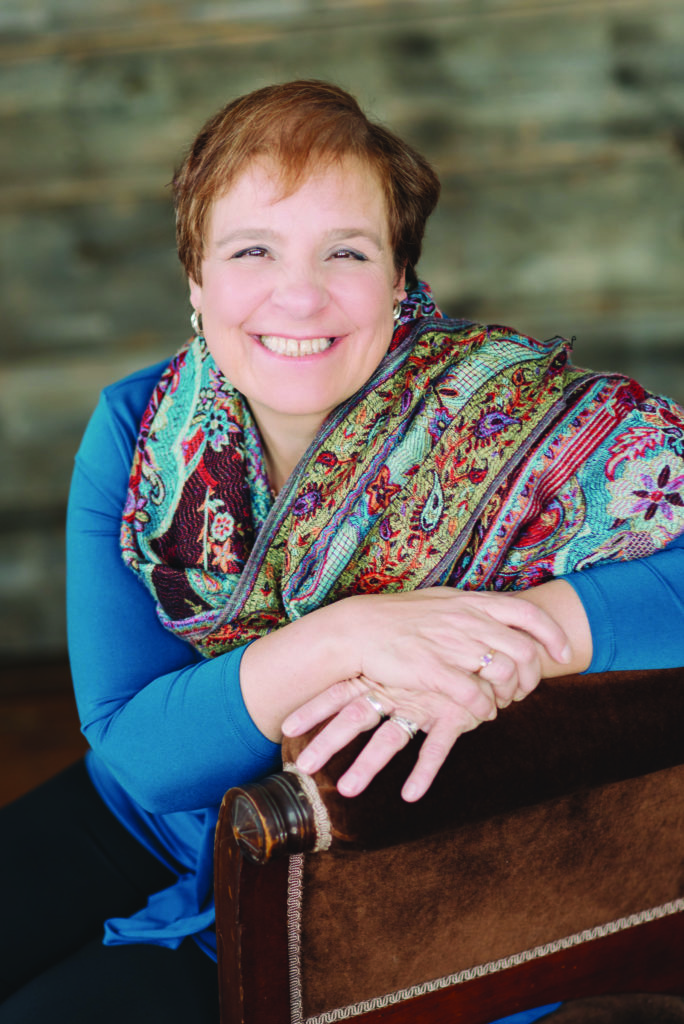Second Act with Carolyn Delaney, publisher and CEO, Journey Magazine

One year ago this month, Carolyn Delaney took a leap of faith to launch Journey, a magazine that offers support and inspiration to the recovery community. A first-of-its kind publication fully staffed by volunteers, Journey’s mission is to “celebrate recovery, amplify hope, and connect and empower those who struggle and those who love people who struggle,” according to its website. In 2020, Delaney and her dedicated team will publish six issues of the magazine, which are distributed from Bath to Kennebunk, including 10 percent going into the prison system and city jails.
Q. What inspired you to launch Journey?
A. A seed was planted with a dream I had back in 2017 about a newsletter that I was the typesetter for in the early ’90s, called Journey. In the fall of 2018 with the increasing devastation of the opiate epidemic, I wondered about starting a magazine that shared stories of people who were once in the throes of active addiction but are now free. I started having conversations with friends: What if we created something physical to show people that addiction doesn’t have to end in death and that we get to live amazing, abundant lives? On November 1, 2018, eighteen of us met to talk about creating a magazine that would offer stories about celebrating freedom from addiction, along with articles that would amplify hope as well as practical articles on spirituality, meditation, wellness, etc. But the focus of the magazine is really to provide a place for people to share their stories of recovery and for us to shine a light on the great work being done by many in the community for the recovery movement. We really believe visible recovery saves lives.
Q. What, if anything, about your professional background prepared you to get into magazine publishing?
A. I spent the last 15 years leading IT departments—using technology to solve business problems. Being agile and flexible enough to respond to ever-changing technology became part of the norm for me, so turning my focus to a new industry required me to ask for help, and boy did I. From a SCORE mentor to Heather Chandler from the SunriseGuide to Lee Hews, formerly with Maine Women Magazine, I reached out to local publishers to ask dozens of questions and received great guidance on my next few steps. At one point in the past year, I realized that most of the activities that were needed to get the magazine created are outside my comfort zone—speaking, sales, editorial, creative, distribution, financials—all of it was new to me. Being able to draw upon experts in their field has been invaluable. What is in my comfort zone is using technology to streamline operations. I was able to look at our processes and put some systems in place to help with efficiency—CRM, distribution tracking, digital asset management—proprietary systems that will scale with us and I was able to do it quite quickly.
Q. What is the most surprising thing you’ve learned?
A. There are so many people who really want to help. My assumption was that Journey would appeal to people seeking recovery, in recovery, and friends and family members, but our readership is much broader—employers, coworkers, agencies and just humans in general. I’ve met the most genuine, kind, compassionate people since I started the magazine. One of my favorite columns is Recovery Allies, where we get to shine a light on groups of people that are actively engaged in helping the recovery community, such as clergy, Rotarians and law enforcement.
Q. How has changing careers impacted your personal life?
A. I am much more visible as a woman in recovery. At first it was a little scary; people I had worked with for years didn’t know I was sober and talking to groups of people about this very intimate, personal part of our lives is some-thing I never saw myself doing. But we are making a difference. We know this from the emails, phone calls, and conversations, and that very visible impact combined with the amazing team of volunteers that help with the magazine fuels me and keeps me motivated. Our mission to amplify hope is so important to me that my own insecurities around being this visible seem petty compared to the good we’re doing.
Q. What are your hopes for Journey in 2020?
A. My hope and our goal is to be available statewide by the end of the year. We really want to share stories and be available in rural areas in Maine. Being a printed magazine removes accessibility issues. Some people don’t have internet and not many places have the variety of 12-step meetings and other recovery programs that Southern Maine does. We’d love to see the magazine avail-able statewide, and we do have distributors for the magazine in key cities: Presque Isle, Houlton, Machias, Bangor, Rumford, etc. Once we’re able financially to print more, we’ll have people to help us amplify hope.

